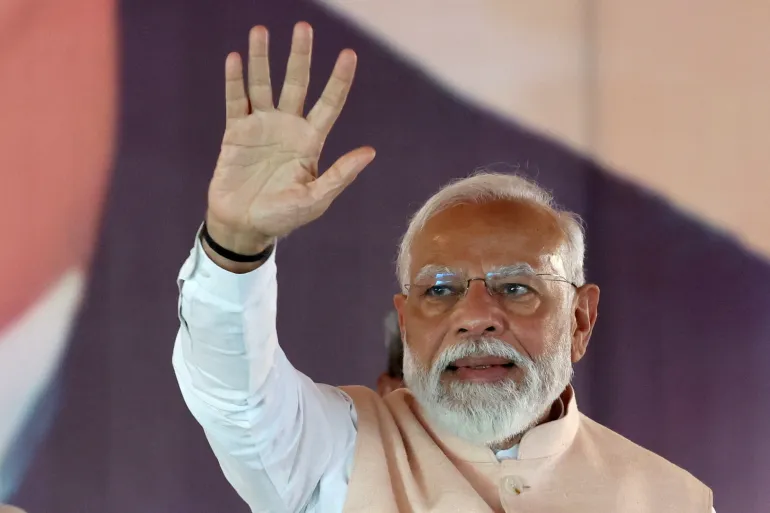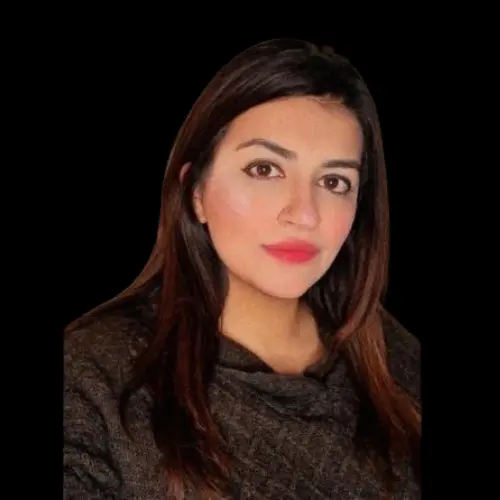
As India’s monumental national election progresses, the campaign rhetoric, particularly from Prime Minister Narendra Modi, is increasingly polarizing and divisive. Speaking to supporters in Gujarat, Modi resorted to a troubling electoral theme, accusing opposition parties of colluding with Muslims to seize power, echoing Islamophobic conspiracy theories and stoking fears of a so-called “vote jihad.”
Modi’s inflammatory language is not merely a political strategy but a dangerous manifestation of communalism that threatens India’s democratic fabric. By vilifying Muslims and portraying them as a threat to Hindu interests, Modi perpetuates an “us-versus-them” narrative that undermines the pluralistic essence of Indian society. This divisive rhetoric not only exacerbates communal tensions but also fosters an environment conducive to violence against religious minorities.
Moreover, Modi’s unsubstantiated claims of a conspiracy to redistribute Hindu wealth to Muslims are not only baseless but also deeply irresponsible. By exploiting deep-seated fears and prejudices, Modi seeks to consolidate his support base at the expense of social cohesion and communal harmony. This calculated strategy of fearmongering and scapegoating undermines the fundamental principles of democracy and erodes trust in democratic institutions.
Critics have rightly condemned Modi’s divisive language as a betrayal of India’s democratic ideals and a serious threat to societal cohesiveness. The prime minister’s efforts to polarise voters along religious lines jeopardise not only the integrity of the electoral process, but also the secular foundations of India’s constitution. Furthermore, India’s election commission’s reluctance to take strong action against hate speech and incitement to violence establishes a dangerous precedent and encourages those who attempt to use communal tensions for political benefit.
Organizations such as Amnesty International have expressed concern over the consequences of Modi’s inflammatory remarks, warning of the potential for increased violence and discrimination against religious minorities. Foreign governments, including the United States and the European Union, have urged India to uphold its democratic principles and protect the rights of all its citizens, regardless of religion or belief.
Also Read: Duality Of Democracy: Indian Elections & Kashmiri’s Struggle
Despite mounting criticism and calls for restraint, Modi’s campaign shows no signs of dialing back its divisive rhetoric. With the election nearing its midpoint and Modi’s popularity seemingly undiminished, the future of India’s democracy hangs in the balance. As the world watches, it is imperative that India’s leaders prioritize unity over division and uphold the values of pluralism, tolerance, and inclusive governance. Only through collective effort and commitment to democratic principles can India overcome the challenges posed by divisive politics and ensure a future of peace, prosperity, and harmony for all its citizens.
At the heart of this lies a troubling trend towards majoritarianism and religious nationalism, which poses a serious threat to India’s secular democracy. Under Modi’s leadership, the ruling Bharatiya Janata Party (BJP) has pursued a Hindu nationalist agenda, marginalizing religious minorities and fostering a climate of intolerance and exclusion. This dangerous trajectory not only undermines India’s democratic credentials but also tarnishes its reputation as a diverse and inclusive society.
Moreover, Modi’s rhetoric has profound implications for India’s social cohesion and economic development. By exacerbating communal tensions and polarizing society along religious lines, Modi risks undermining the country’s social fabric and impeding its progress towards prosperity and stability. In a diverse and pluralistic nation like India, unity and inclusivity are essential prerequisites for sustainable development and shared prosperity. Modi’s divisive tactics not only threaten to derail India’s democratic progress but also jeopardize its future as a cohesive and harmonious nation.
India’s election rhetoric, spearheaded by Prime Minister Narendra Modi, represents a dangerous departure from the country’s democratic ideals and a betrayal of its pluralistic heritage. Modi’s attempts to exploit communal divisions for political gain undermine the integrity of the electoral process and pose a grave threat to India’s social cohesion. As the world’s largest democracy, India must reaffirm its commitment to pluralism, tolerance, and inclusive governance to safeguard its democratic future.
The opinions shared in this article reflect the author’s personal views and do not necessarily align with the institution’s official stance.



















Leave a Reply